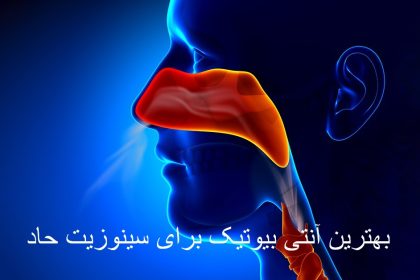What is sexual depression?
Sexual depression is a term used when one partner loses interest in sex or is unable to have a healthy and complete relationship. Depression directly affects hormones or neurotransmitters in the brain. These transmitters, with their effects on the brain of people, increase the blood flow in the sexual organs. Depression causes the function of this organ to be disrupted to a great extent.
As a result of hormonal dysfunction, a person will lose interest in sex and will not respond to any sex drives sent by their partner.
By reducing the quality of married life, sexual depression can affect the emotional relationship between men and women and create breaks in their lives together. Knowing that in many of these cases sexual problems are caused by mental disorders helps couples to have a better understanding of each other and to show less unhealthy behaviors such as blame, humiliation or violence.
What are the symptoms of sexual depression?
Sexual depression appears in different ways. The most sexual disorders that usually occur in the state of sexual depression include the following:
- Sexual reluctance in the form of inability to start intercourse and not enjoy it – occurrence of erectile dysfunction in men
- Inability to experience orgasm
- Occurrence of ejaculation disorders such as premature ejaculation or late ejaculation in men
The prevalence of sexual depression is higher in women. The reason is their hormonal changes. Childbirth, menopause and menstruation affect women’s sexual performance. For example, there is a type of depression called postpartum depression, in which women experience moderate to severe depression and decreased libido.
Symptoms of sexual depression in men
- erectile dysfunction
- Decreased libido and lack of interest in sex
- Inability to initiate or enjoy sex
- Ejaculation disorders such as premature ejaculation and late ejaculation
Symptoms of sexual depression in women
- Vaginal dryness and sexual pain
- Decreased libido and lack of interest in sex
- Orgasm problems
- Lack of sexual excitability
What is the cause of sexual depression?
The cause of sexual depression generally includes all the things that can lead to or be affected by depression. These include:
- Chronic anxiety
High mental pressure - Menopause
- Hormonal problems
- Sexual pains
- pregnancy
- giving birth
- Long-term conflicts with a partner
- Low self-confidence regarding sexual organs and abilities
- sexual disorders
- Rape experience
- Medical problems such as cancer, diabetes, heart problems, etc
Antidepressants that negatively affect desire, arousal, or orgasm:
- Citalopram
- Escitalopram
- fluoxetine
- Paroxetine
- Sertraline
- Venlafaxine
Antidepressants that are less likely to cause sexual side effects:
- Bupropion
- Mirtazapine
- Nefazodone
- Vilazodon
How is sexual depression treated?
If you are taking antidepressants and you suspect that your sexual depression is caused by the side effects of these drugs, your first step should be to see a doctor. In such cases, the doctor will probably prescribe you other drugs that do not have the harmful effects of the previous drugs.
Another possibility is that your doctor may prescribe that you take your antidepressant after sex.
Except for the above medicinal cases, there are some other things that affect sexual depression and can provide the basis for its treatment or control. These issues and solutions are as follows:
Exercising (especially Kegel exercises that increase blood flow in the genitals)
Healthy lifestyle (proper diet, no alcohol and smoking, less stress, quality sleep)
Stress control (you can reduce the intensity of your stress by observing a series of tips such as quality sleep and more, meditation and breathing exercises.)
Creating variety in sex (variety of sexual situations, using candles and flowers to romanticize the bedroom and talking about your sexual interests with your partner can be useful in this regard.)
CBT treatment of sexual depression
One of the best ways to treat sexual depression is cognitive-behavioral therapy. In the first step, the therapist assures the patient that the problem created for him is reversible and he should not think that his sexual activity is permanently impaired. Cognitive behavioral therapy or CBT for people who have decreased libido due to depression takes at least 8 sessions. In this treatment method, certain exercises are recommended to one or both sexual partners, which help to solve their problems.
RCO NEWS
RCO


















